Makkah—The Most Honoured Land on Earth
Makkah al-Mukarramah is the noblest of lands, the most sacred of all places, and the most beloved city to Allah ﷻ and His Messenger ﷺ. It is the spiritual heart of the Muslim world, toward which hearts yearn and faces turn in every prayer. It is the land of worship, humility, and divine connection.
Here lies the first House ever placed for humanity, a sanctuary made by divine decree: “a place of return and safety”, where the duʿāʾ of Ibrāhīm عليه السلام was answered:
وَإِذْ قَالَ إِبْرَاهِيمُ رَبِّ اجْعَلْ هَـٰذَا بَلَدًا آمِنًا وَارْزُقْ أَهْلَهُ مِنَ ٱلثَّمَرَاتِ مَنْ آمَنَ مِنْهُم بِٱللَّهِ وَٱلْيَوْمِ ٱلْآخِرِ
“And [remember] when Abraham said, ‘My Lord, make this a secure city and provide its people with fruits—those among them who believe in Allah and the Last Day.’”
(Sūrat al-Baqarah 2:126)
Prophet Ibrāhīm عليه السلام, the father of prophets and a central figure in monotheistic tradition, laid the foundations for two great civilisations rooted in divine guidance. After journeying from Iraq in obedience to Allah’s command, he established one lineage and legacy in Palestine, through his son Ishāq, whose descendants included Yaʿqūb (Israel) and many of the prophets of Banū Isrāʾīl. The second great civilisation was founded in Makkah, through his son Ismāʿīl, whom he left with his mother Hājar in the barren valley by Allah’s decree.
It was in Makkah that Ibrāhīm and Ismāʿīl عليهما السلام together raised the foundations of the Kaʿbah, establishing a sanctuary and a community rooted in tawḥīd. These two blessed lands—Palestine and Makkah—became cradles of prophethood, spiritual revival, and sacred law. Thus, from one noble prophet emerged two streams of divine civilisation, each illuminating vast regions of the world with the light of guidance and worship.
Makkah is the birthplace of the final Messenger ﷺ, the land from which the light of guidance radiated, and the site where the Qur’an began its descent. It is Ḥaram Allāh, the inviolable sanctuary where blood must not be shed, game must not be hunted, trees must not be cut, and lost items must not be taken except to identify.
It is the only place on earth where the reward of a prayer is multiplied one hundred thousand times, and where the Black Stone—a stone from Paradise—is honoured by being kissed.
Surrounded by rugged mountain chains to the east, west, and south, Makkah is nestled in a network of valleys that form a natural fortress. Historically, it was protected by three fortified gates: Bāb al-Maʿlā from the east, Bāb al-Shubaykah from the west, and Bāb al-Yaman from the south. Its mountainous terrain has long served as a natural defence, wrapping the city like a bracelet around a wrist. Geographically, Makkah lies in the western region of the Kingdom of Saudi Arabia at a latitude of approximately 21° N and an elevation of around 280 metres above sea level.
Allah ﷻ swore by it, saying:
لَا أُقْسِمُ بِهَٰذَا ٱلْبَلَدِ * وَأَنتَ حِلٌّۢ بِهَٰذَا ٱلْبَلَدِ
“Nay! I swear by this city – and you [O Prophet] are free in this city.”
(Sūrat al-Balad 90:1–2)
Commenting on this, Ibn Kathīr writes that this oath highlights the majesty of Makkah, especially given the presence of the Prophet ﷺ therein. Elsewhere, Allah ﷻ calls it:
﴿ وَهَـٰذَا ٱلْبَلَدِ ٱلْأَمِينِ ﴾
“And this secure city [Makkah].”
(Sūrat al-Tīn 95:3)
The sanctity and nobility of Makkah are deeply embedded in Qur’anic verses, ḥadīths, and the unanimous reverence of scholars throughout the ages. It is the land that houses the first place of worship ever appointed for humanity:
إِنَّ أَوَّلَ بَيْتٍ وُضِعَ لِلنَّاسِ لَلَّذِي بِبَكَّةَ مُبَارَكًا وَهُدًى لِّلْعَـٰلَمِينَ
“Indeed, the first House [of worship] established for mankind was that at Bakkah – blessed and a guidance for the worlds.”
(Āl ʿImrān 3:96)
In a narration agreed upon by al-Bukhārī and Muslim, Abū Dharr رضي الله عنه asked the Prophet ﷺ:
“Which mosque was built first on earth?” He ﷺ replied, “Al-Masjid al-Ḥarām.” I said, “Then which one?” He said, “Al-Masjid al-Aqṣā.” I said, “How much time was between them?” He said, “Forty years.”
Moreover, Makkah was declared a sacred sanctuary by Allah Himself, where the spilling of blood, the cutting of trees, and the disturbing of wildlife are all prohibited. This inviolability is emphasised in the ḥadīth of Abū Shurayḥ رضي الله عنه, where the Prophet ﷺ declared:
“Indeed, Makkah was sanctified by Allah and not by the people. It is not permissible for any person who believes in Allah and the Last Day to shed blood therein or to cut down its trees. If anyone seeks the Prophet’s permission to fight therein, say to them: Allah has permitted His Messenger, and He has not permitted you. He allowed me in it for only an hour of the day, and now its sanctity has returned as it was before. Let the witness inform the absent.”
(al-Bukhārī and Muslim)
Such is the honour of this city that even its luqaṭah (lost property) is not to be claimed as personal possession, but only to be kept for identification. Its status is a living testimony to Allah’s divine wisdom in selecting not just people and times, but also places for specific blessings and responsibilities.
The virtue of Makkah al-Mukarramah over all other places is affirmed by numerous revealed texts and scholarly explanations. This pre-eminence is rooted in various unique qualities bestowed by Allah ﷻ:
- Home of the First House of Worship
Among the greatest honours granted to Makkah is that it houses Bayt Allāh al-ʿAtīq, the first house established for the worship of Allah on earth. Allah ﷻ says:
وَإِذْ جَعَلْنَا الْبَيْتَ مَثَابَةً لِّلنَّاسِ وَأَمْنًا
“And [mention] when We made the House a place of return for the people and [a place of] security.”
(Sūrat al-Baqarah 2:125)
إِنَّ أَوَّلَ بَيْتٍ وُضِعَ لِلنَّاسِ لَلَّذِي بِبَكَّةَ مُبَارَكًا وَهُدًى لِّلْعَالَمِينَ
“Indeed, the first House [of worship] established for mankind was that at Bakkah – blessed and a guidance for the worlds.”
(Āl ʿImrān 3:96)
Imām al-Ṭabarī comments in Jāmiʿ al-Bayān that the meaning of “mathābatan li’l-nās” is a constant return—people keep coming back to it year after year, driven by love and longing, never tiring of its presence.
Ibn al-Qayyim notes in Zād al-Maʿād that the hearts are irresistibly drawn to this sacred city—greater even than the pull of iron to a magnet—so much so that its beauty and sanctity captivate believers, evoking love and yearning with every visit:
“It is the magnet of men’s hearts, and every form of beauty flows into it…”
- Its Centrality in the Pillars of Islam
Makkah was singled out by Allah as the destination of Ḥajj, making it the only city on earth obligatory for every able Muslim to visit at least once in a lifetime:
وَلِلَّهِ عَلَى النَّاسِ حِجُّ الْبَيْتِ مَنِ اسْتَطَاعَ إِلَيْهِ سَبِيلًا
“And [due] to Allah from the people is a pilgrimage to the House – for whoever is able to find thereto a way.”
(Āl ʿImrān 3:97)
- Its Status as a Sacred and Secure Sanctuary
Makkah is declared a ḥaram āmin (sanctuary of peace), where conflict, violence, and even disturbing animals or uprooting plants are forbidden:
أَوَلَمْ يَرَوْا أَنَّا جَعَلْنَا حَرَمًا آمِنًا وَيُتَخَطَّفُ النَّاسُ مِنْ حَوْلِهِمْ
“Have they not seen that We made [Makkah] a secure sanctuary while people are being taken away all around them?”
(Sūrat al-ʿAnkabūt 29:67)
In the Sahīḥayn, Ibn ʿAbbās رضي الله عنهما reports that the Prophet ﷺ declared on the day of the Conquest of Makkah:
“Indeed, Allah made this city sacred on the day He created the heavens and the earth, and it will remain sacred by the sanctity of Allah until the Day of Judgement. Fighting therein was never permitted to anyone before me, and it was only made lawful for me for a brief hour of the day. Its sanctity has now returned as it was. So, its thorns are not to be uprooted, its game is not to be disturbed, and its lost property is only to be picked up by one who will announce it…”
(Agreed upon)
Imām al-Ṭabarī states: “Allah called it a sanctuary of safety because even in pre-Islamic times it was a refuge; a person could meet the killer of his father there and would not be harmed.”
Imām al-Māturīdī further explains in Ta’wīlāt Ahl al-Sunnah that the verse reminds the people of Allah’s great favour upon them, whether the address is to Quraysh directly or mankind at large.
- The Most Beloved Land to Allah and His Messenger ﷺ
No other city holds the same status in divine and prophetic affection. It was chosen by Allah as the site of His House and by the Prophet ﷺ as the most beloved place on earth:
The Prophet ﷺ said,
“How sweet and beloved you are to me! Had my people not expelled me, I would never have lived elsewhere.”
(al-Tirmidhī, ḥasan ṣaḥīḥ)
In another narration:
“By Allah, you are the best land of Allah and the most beloved land of Allah to Him. Had I not been driven out, I would not have left you.”
(Aḥmad and al-Tirmidhī, ṣaḥīḥ)
Al-ʿAllāmah al-Ṭayyibī notes the nuanced difference in two narrations: the first attributes love to the Prophet ﷺ due to his birthplace and early attachment, while the second confirms its superior status with Allah Himself. He connects this with the verse:
إِنَّ ٱلَّذِى فَرَضَ عَلَيْكَ ٱلْقُرْءَانَ لَرَآدُّكَ إِلَىٰ مَعَادٍ
(“Indeed, He who imposed the Qur’an upon you will bring you back to the place of return.”)
(Sūrat al-Qaṣaṣ 28:85)
This verse, revealed during the Prophet’s ﷺ migration, promised his return to his beloved birthplace, a longing fulfilled by divine command.
- Multiplied Rewards and Greater Accountability
Among the unique distinctions of Makkah al-Mukarramah is the multiplication of rewards for good deeds performed within its sacred precincts, as well as the increased gravity of sins committed therein. This divine favour aims to encourage the believers to strive in obedience and avoid disobedience, so that the sanctity of the place is preserved, and righteousness prevails.
Immense Reward for Fasting and Worship
The Prophet ﷺ said, as narrated by Ibn ʿAbbās رضي الله عنهما:
“Whoever experiences the month of Ramaḍān in Makkah, fasts it, and offers from it what he is able of qiyām (night prayer), Allah will record for him the reward of one hundred thousand Ramaḍāns elsewhere.”
(Ibn Mājah)
And in another narration from Ibn ʿUmar رضي الله عنهما:
“Ramaḍān in Makkah is better than a thousand Ramaḍāns elsewhere.”
(al-Bazzār)
Imām al-Ḥasan al-Baṣrī said in Faḍāʾil Makkah:
“There is no land on the face of the earth where Allah multiplies a single good deed up to a thousand times except in Makkah. Whoever prays there one ṣalāh is credited with a hundred thousand prayers. Whoever fasts a day, it is recorded as a hundred thousand days. Whoever gives a single dirham in charity, it is counted as a hundred thousand. Whoever completes a single khatm (recitation of the Qur’an) there, it is recorded as a hundred thousand completions. All good deeds in Makkah are multiplied by one hundred thousand. And I do not know of a land from which more prophets, righteous, martyrs, scholars, and devout worshippers will be resurrected on the Day of Judgement than Makkah. They will rise in safety from Allah’s punishment. A single day spent in the Ḥaram of Allah is more hopeful and greater than fasting and praying for an entire lifetime elsewhere.”
(Faḍāʾil Makkah, p. 21–22)
Greater Consequence of Sin
As reward is magnified in Makkah, so too is the severity of sin committed therein. Imām al-Nawawī states in al-Īḍāḥ fī Manāsik al-Ḥajj:
“Sins committed in Makkah are more disgraceful than elsewhere, just as good deeds are more virtuous therein… The scholars who prefer Makkah for residence do so because of the exclusive acts of worship available there, such as ṭawāf and the multiplied reward of ṣalāh and good deeds.”
Ibn al-Qayyim clarifies this principle in Zād al-Maʿād:
“Increased severity of sins in Makkah refers to their gravity, not their quantity. Each sin still earns its due punishment, but its magnitude is greater when done in the Sacred Land. Disobeying Allah on His sacred ground is unlike disobedience elsewhere—just as rebelling against a king in his court is far worse than doing so outside his domain. This is the key to understanding the concept.”
Similarly, al-ʿAllāmah al-Buhūtī affirms in Sharḥ Muntahā al-Irādāt:
“Good deeds and bad deeds are multiplied in both noble times and sacred places.”
(1/488)
- The Title “Umm al-Qurā” – The Mother of All Settlements
One of the most remarkable aspects of Makkah al-Mukarramah’s grandeur is the multitude of noble names by which it is known—each reflecting an aspect of its sanctity, function, or divine honour. Among these is the title “Umm al-Qurā” (The Mother of All Settlements).
Imām al-Nawawī notes in Tadhīb al-Asmāʾ wa’l-Lughāt:
“Know that the abundance of names indicates the greatness of the named—just as is the case with the names of Allah ﷻ and His Messenger ﷺ. There is no land known to have more names than Makkah and Madīnah, due to their superiority and the multitude of qualities requiring designation.”
(3/332)
Allah ﷻ referred to Makkah by this name in the Qur’an:
وَلِتُنذِرَ أُمَّ الْقُرَىٰ وَمَنْ حَوْلَهَا
“…so that you may warn the Mother of Cities and those around it.”
(Sūrat al-Anʿām 6:92; also in al-Shūrā 42:7)
Why Is Makkah Called "Umm al-Qurā"?
The scholars have offered several explanations for this honourable designation:
- Origin Point of Earth’s Spread:
Imām al-Ṭabarī explains in Jāmiʿ al-Bayān that Makkah is called “Umm al-Qurā” because it preceded all other towns and is their origin. The earth was spread out (duḥiyat) from beneath it, making it like a mother from whom the rest is born:
“It has been said that Makkah was named Umm al-Qurā because the earth was spread out from it, so it became the ‘mother’ of all lands.”
(1/108)
- Centre of Guidance and Direction:
According to al-Samarqandī in Baḥr al-ʿUlūm, Makkah is the qiblah toward which all people direct themselves, and thus holds a central, motherly position for all regions:
“It is the qiblah of all people. They head toward it, so it is like a mother to them.”
(1/501)
- Greatest and Most Honoured of Towns:
Al-Zajjāj and Ibn Abī Ḥātim emphasise its status as the most significant town, hosting the first House ever built for the worship of Allah:
“It was named Umm al-Qurā because it was the most honoured of all towns.”
(Zajjāj, 2/271; Ibn Abī Ḥātim, 4/1345)
- First and Most Famous Settlement:
Al-Ṭāhir Ibn ʿĀshūr states in al-Taḥrīr wa’l-Tanwīr:
“It was called Umm al-Qurā because it was the first and most well-known of all towns. No towns in Arabia were settled before it.”
(7/372)
Thus, this title reflects not only Makkah’s geographical and historical centrality but also its spiritual precedence and divine elevation above all other human settlements.
Disclaimer
The views expressed in this article are the author’s own and do not necessarily mirror Islamonweb’s editorial stance.

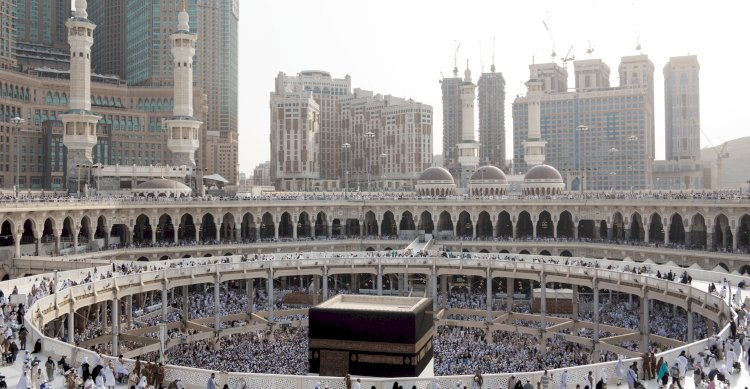


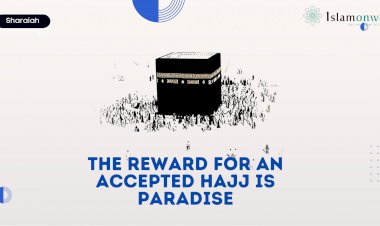
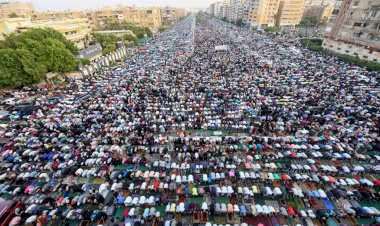
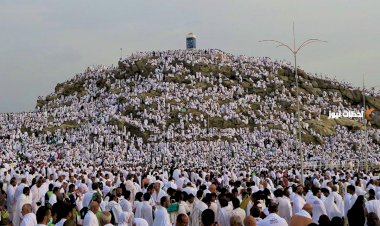
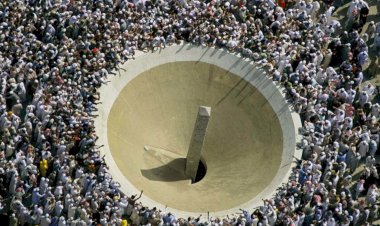
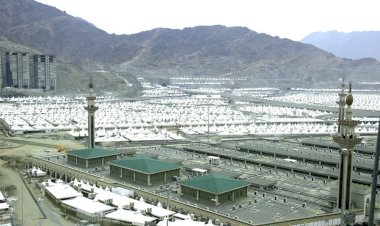
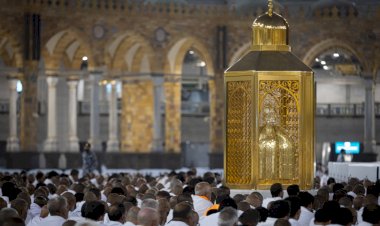














Leave A Comment